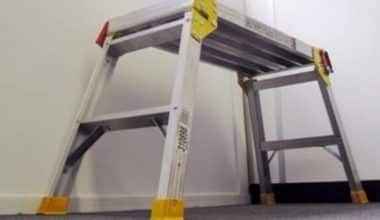Working smarter, not harder, can boost productivity and performance while also enhancing job happiness. It can also make you a valued asset to your employer, enhancing your job security and potentially allowing you to earn greater pay. Learning tips on how to work smarter, not harder, will help you be more successful in your profession. We explain what it means to work smarter, not harder, the benefits of working smart, and give tips and examples of how you may achieve this in your business in this post.
What Does “Work Smarter, Not Harder” Mean?
Working smarter, not harder, is figuring out how to spend your energy and time at work more efficiently, which can help you do tasks faster. You can accomplish this by employing a variety of tactics to help you prioritize your work and discover the most critical activities. Aside from increased productivity, here are some business benefits of working smarter, not harder:
- Conserving energy: Working in short bursts, for example, permits you to do difficult jobs with less effort and achieve better outcomes.
- Increasing motivation: It can instill confidence in your career, colleagues, and yourself.
- Making you more valuable: Companies are always looking for ways to get more done with less effort, and being able to do so can help you become a more valued employee.
- Boosting self-esteem: Working smarter allows you to produce a higher-quality product with less effort, which can increase your self-esteem.
How To Work Smart in Business
As business owners, we are constantly told that it is critical to work smarter, not harder. But how can you go about making your business work smarter? It is not something that happens by chance. You must plan how to work smartly in business. Fortunately, there are certain things you can do to ease the transition:
#1. Concentrate on what is mission critical
When it comes to working smart in business, the first step is determining which jobs are mission-critical. What will propel your firm to the next level?
Examine the business tasks you are considering carefully. Which items are most likely to have the most influence? What steps will propel your company to the next level of development? You can utilize the Pareto principle to figure out which 20% of tasks produce 80% of the desired results.
#2. Make use of technology to make your life easier
Next, employ technology to simplify things. We are lucky to live in an era when technology may assist us in working smarter in a variety of ways.
Technology has altered how we send and receive money, making it easier and faster to receive payment. Furthermore, technological tools can help you accomplish more in less time. I adore calendar and scheduling apps. It allows others to contact me without having to waste time exchanging emails back and forth.
#3. Assign tasks
Delegation is one of the most crucial things you can do for your business. In business, one method to work smarter rather than harder is to outsource. When I began delegating and outsourcing chores, I noticed a significant improvement in my capacity to complete projects.
You might be shocked to learn that delegating responsibilities allows you to scale better and earn more money. When you’re not bogged down by the ordinary, you can concentrate on what’s important. When you delegate, you make significantly more progress.
#4. Get rid of time wasters
It is feasible to hold productive meetings. But are there too many of them? Are there any tasks that simply take too much time without producing good results? Do you say “yes” to a lot of things?
When this becomes an issue, you must determine which tasks in your firm should be eliminated. You sometimes try to do too much. Are you branching out into services that don’t make sense for your business? Do you constantly attempt to cram a project in when it’s just a waste of time?
Tips To Work Smarter Not Harder
Since transitioning to full-time freelance writing over the last few years, I’ve had to up my productivity management game. Many of the resources I’ve come across emphasize “working smarter, not harder.” But what exactly does that mean?
Working smarter rather than harder requires understanding how you work best and applying that knowledge to maximize your work. So I drew on my own experiences—as well as those of others—to provide you with practical tips and examples of how to work smarter, not harder.
How to work smarter rather than harder
Working smarter is all about tailoring the experience. Here are some tips and examples of how to work smarter rather than harder:
#1. Establish a morning routine.
Try to start your day the same way every day. This might be as simple as going for a quick walk before sitting at your work, or as complex as starting your day by reading a book for professional growth. Meditation can be a terrific way to start your morning because it can enhance your attention, and mood, and reduce any stress or anxiety you may be feeling.
#2. Keep your to-do list short
Each day, try to focus on three to five critical and difficult activities. Consider making them the most critical activities, which will make you feel accomplished once completed. To properly prioritize your work, focus on these things one at a time before moving on to less critical duties.
#3. Create a closing routine.
If you have a regular for starting your day, try to establish a routine for ending your day as well because it can set you up for a fantastic start the next morning. Make a list of the top three or five activities you want to do the next day. When you’re through, consider tidying your desk and putting away any misplaced items.
#4. Display your calendar availability
Set aside times in your calendar to focus on work. This can provide you with more time to complete your work while avoiding unanticipated distractions. If your organization uses a shared, public calendar, this can also be a useful approach to guarantee that your coworkers respect your need to focus.
#5. React promptly
Make it a practice to respond to individuals right away. When you open an email that requires a response, responding quickly allows you to cross the job off your list. If you say you want to talk to someone about something, make an effort to contact them within 24 hours.
#6. Track your outcomes rather than your time.
Keep a running list of everything you do during the day. This will make you feel more motivated and accomplished. This list allows you to easily celebrate your accomplishments and better predict how long similar chores will take in the future.
#7. Improve your communication abilities
Prioritize improving your communication and teamwork skills. You might begin by practicing active listening and remaining on topic when conversing with someone. For example, if you’re composing an email to a coworker, try to keep it short and to the point.
#8. Make meetings more fruitful.
Meetings are frequently required, and going in with a strategy can help them be more effective. Having an outline for what you want to discuss and your goal outcome will help keep meetings shorter and more focused. Keep the meeting as brief and productive as possible, and conclude with action items to ensure that everyone understands what you want from them.
#9. Work in intervals
Consider taking more breaks and splitting your day into 90-minute or two-hour parts to boost your overall productivity and maximize your brain’s ability to focus. You can also stick to your break schedule while concentrating on your job during your 90-minute work sessions. At these times, it’s a good idea to turn off your email and put your phone on quiet.
#10. Concentrate on one task at a time
Switching from one work to another without finishing the previous one might be wasteful since your brain may require time to adjust to the new task. You can avoid this by focusing your entire focus on a single work until it is completed or you reach a natural stopping point. You may also be able to plan your regular breaks around your duties to allow your brain to recover before beginning the next one.
#11. Establish short deadlines
Setting deadlines for your job can help you focus and consider completing chores in shorter amounts of time. This can boost your efficiency while working on your duties, allowing you to do them in less time than you would otherwise have. This gives you more time during the day to focus on other chores or to clean your office before leaving for the day.
#12. Use stress-reduction practices.
Consider stress-reduction strategies such as reading, meditating, listening to music, or doing yoga. These tactics can help you reduce stress, which can have an impact on your physical, emotional, and mental health. Doing them daily will help you focus better and perform better at work.
Benefits of Working Smarter, Not Harder
You should not waste your time or energy. Working intelligently conserves energy and maximizes time. It allows you to spend less time burning energy and more time preserving it for more vital activities.
Furthermore, it makes you a more efficient worker. You understand what tasks must be completed in what order and the best strategies for doing so. Here are some benefits of working smarter rather than harder:
- It allows you more rest: When you work smart, you also rest smart. It allows you extra time for various types of rest. This could include meditating, practicing mindfulness, or even sleeping. Short naps have been shown to increase your memory, your mood, and your creativity.
- Aids in the reduction or recovery from burnout: Burnout saps your vitality and damages your mental health. However, working smarter allows you to be more careful of your energy to recuperate or reduce burnout. Working smarter demonstrates how to connect with your beliefs, what is important to you, and your ambitions.
- Improves your work-life balance: Rather than working more hours and becoming consumed by your professional life, working smarter allows you to devote more time to your home life. Working smarter is an excellent time management approach that allows you to have more balance in your life while still meeting deadlines on time.
- Increases your work motivation: The change will be difficult to overlook after a few days of working smart. Your motivation will rise as you become more productive and enthusiastic about your task. You’ll see how this new technique motivates you to establish new goals and continue your improvement.
Is It Better To Work Smarter, Not Harder?
Working smarter, not harder, can boost productivity and performance while also enhancing job happiness.
How Can I Teach Smarter Not Harder?
As a teacher, here are some tips on how to work smarter, not harder:
- Bulletin Boards should be removed, at the start of the school year.
- Allow perfection to go.
- Look for ways to validate yourself.
- Assign a classroom helper job to each student.
- Create routines, systems, and timetables.
- Reduce the amount of homework assigned.
- Use a student-centered classroom regularly.
How Can I Work Smarter and Not Harder To Make Money?
So, here are some tips to work smarter, not harder, to make money in business:
- Follow the fundamental principles of effective financial planning.
- Make and stick to a budget.
- Pay off your debts.
- Debts should be refinanced with newer loans.
- Make a pension or retirement plan.
- Get life insurance to protect your family.
- Put your money into mutual funds.
- Deposit funds in a bank.
How Can I Get Smarter Fast and Easy?
Habits that can assist you in becoming smarter:
- Keep reading.
- Surround yourself with people who share your values.
- Start exercising daily.
- Study a new language.
- Look for opportunities to learn.
- Reduce your screen time.
- Meditation should be practiced.
- Explore video games.
How Can I Work Efficiently?
Workplace productivity tips:
- Reduce the number of tasks on your to-do list.
- Replace your to-do list with a schedule.
- Stop while you’re still rolling.
- Maintain your organization.
- Make it more difficult to engage in harmful habits.
- Prioritize.
- Prioritize your most crucial tasks.
- Plan tomorrow tonight.
How Can I Stay Productive All Day?
Tips for increasing productivity include:
- Stop trying to multitask.
- Set minor objectives.
- Take a breather.
- The rule of five minutes.
- Time management.
- Delegate.
- Distractions should be kept to a minimum.
- Do the most difficult task first.
What Are Five Ways To Improve Productivity?
Top corporate productivity tactics include:
- Keep things as simple as possible.
- Make a list of reminders.
- Goals should be reviewed daily (or at least regularly).
- Reduce time-wasting activities.
- Make use of productivity apps.
- Motivate your group.
- Multitasking should be avoided.
- Provide a wellness program.
How Can I Work Faster and More Productive?
How to complete tasks more quickly (7 tips):
- Work at your most productive hours of the day.
- Divide large jobs into digestible chunks.
- Multitasking should be avoided.
- Attempt task batching.
- Make your workspace more productive.
- Take frequent pauses.
- Don’t strive for perfection.
Conclusion
Implementing these tips and examples of how to work smarter, not harder, will not transform your life overnight. It takes time to develop these smart working tactics, and you must experiment to find out what works best for you before committing to them.
Perhaps you’ll attempt a couple of the tips and examples of how to work smarter, not harder, and discover they don’t work for you—that’s fine. You’ve identified what doesn’t work for you and are abandoning those working habits.
- HOW TO GET SMARTER: 15 Proven Habits that Work Everyday
- ORGANIZATIONAL ETHICS: How To Design Organizational Ethics and Behaviour
- BUSINESS INTELLIGENCE (BI): Definition, Importance, Tools & Benefits
- HOW TO BE MORE PRODUCTIVE: Best Tips to Becoming Productive at All Times
- EMPLOYEE PRODUCTIVITY: How To Measure & Improve Productivity(Opens in a new browser tab)
- BEST PLACES TO STAY IN LONDON: Best Areas In 2023






